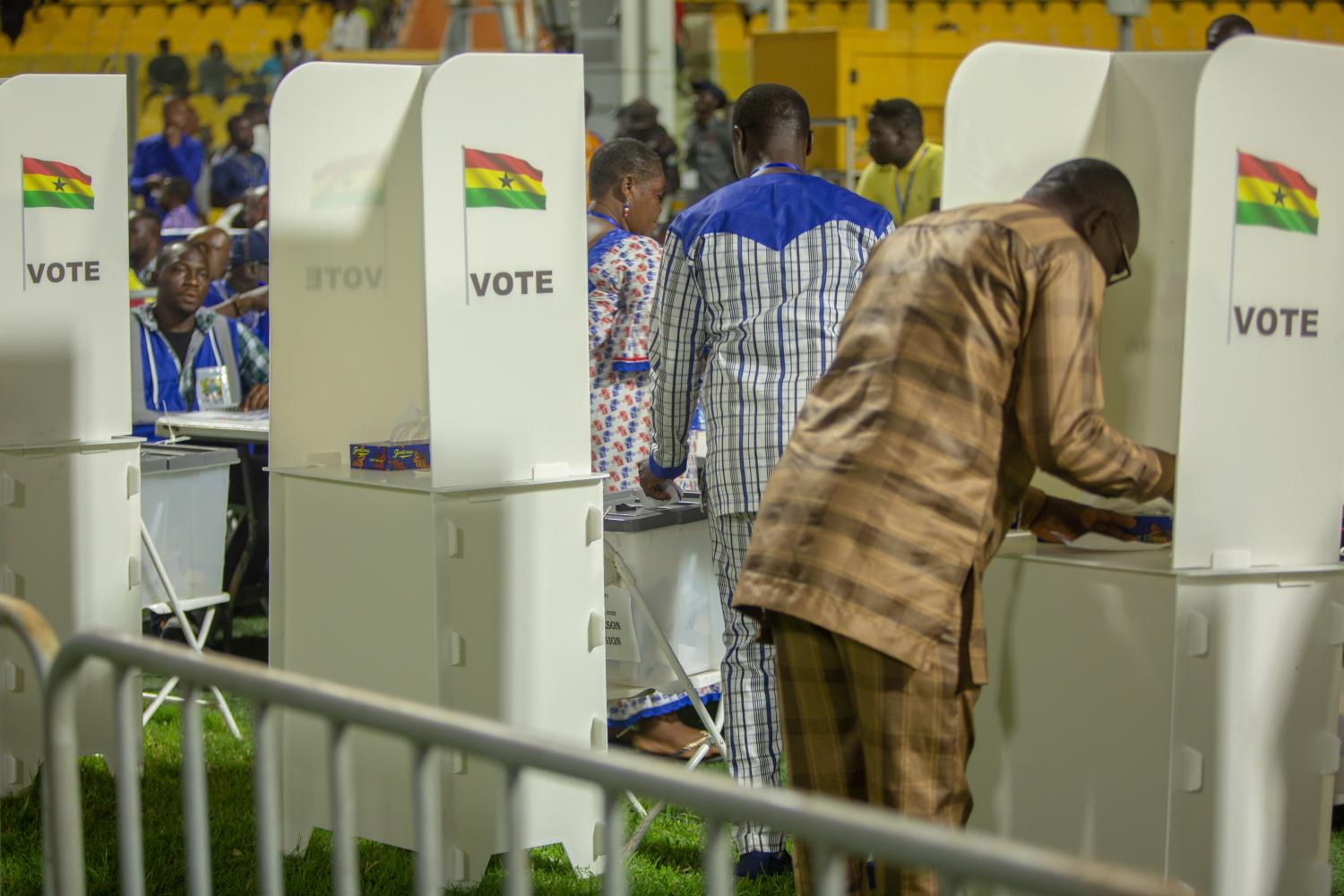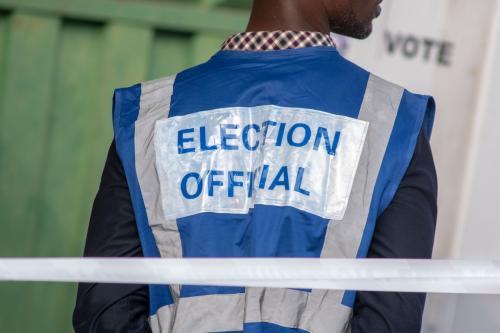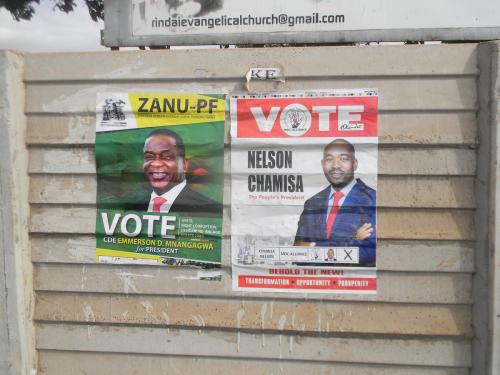This blog is part of a project on the state of democracy in Africa. See our other works from this project.
Ghana’s democracy is not perfect, but it continues to show a kind of resilience that stands out in a sub-region wrestling with coups and democratic backsliding. In December 2024, despite economic hardship and citizen frustration, Ghanaians still turned up at the polls, with about 61% of registered voters casting ballots (albeit down from nearly 79% in 2020). The New Patriotic Party (NPP), despite its promise to extend its rule and break with a tradition of the governing party being voted out every eight years, lost to the National Democratic Congress (NDC). Citizens, unhappy with the state of affairs, expressed their displeasure with the incumbent NPP government and exercised their electoral rights by voting for the opposition NDC and former President John Mahama. The return of the NDC, particularly with John Mahama as president once more, ontologically aligns with the Akan Adinkra concept of “Sankofa:” A socio-philosophical concept that suggests that to make progress for the desired future, one must occasionally revisit the past to uncover solutions for present and future challenges. The early concession by the NPP and the transfer of power afterwards once again cemented Ghana’s reputation for credible elections and smooth transitions.
Additionally, over the course of nine electoral cycles and elections, institutions like the Electoral Commission (EC), the courts, the media, and civil society have successfully held firm in guarding the electoral gains the country has consolidated. Since 1992, Ghana’s EC has successively conducted nine highly competitive elections with four peaceful transitions of power, a significant achievement in Africa. This track record showcases the country’s political stability and trust in the electoral process among its citizens.
The Ghanaian judiciary during this period was also repeatedly called upon to adjudicate tense post-election disputes, notably in 2012 and in 2020. Yet despite controversies over the disputes, the judiciary managed to uphold firm resolutions in routinizing the legitimacy of the electoral outcomes, reaffirming citizens’ trust in the process. The scrutiny of the media and civil society that gave a voice for citizens to seek and demand accountability of their governments cannot be devalued. Data from round 10 of Afrobarometer (2024) indicated that 82% of Ghanaians agreed the media should constantly investigate and report on government mistakes and corruption. Although in recent times studies show there is a strong sense of media capture in Ghana, the people’s support for media freedom is high, which underscores why Ghana continues to have one of the most pluralistic and lively press landscapes on the continent.
Despite the suspicion that elites have captured both the state and the democratic process, Afrobarometer data highlights that Ghanaians maintain a strong and unwavering trust in the democratic framework. This persistence underscores their deep-seated commitment to democratic norms and values, reflecting their belief in the democratic system. Even in the face of challenges, the populace remains hopeful and engaged, indicating a resilient faith in their ability to influence the political landscape and advocate for accountability and transparency.
This is reflected by the 73% of citizens who indicated in the Afrobarometer survey that democracy is still their preference over any other form of government, with six to eight in ten rejecting authoritarian alternatives such as one-party rule, one-man rule, or military rule. Even during economic downturns, when trust in leaders plummets, faith in the ideals of democracy itself has proven to be resilient. International indices echo this story of resilience. Ghana’s 2023 score on V-Dem’s Electoral Democracy Index was 0.67, comfortably above the global average (0.49), while Freedom House continues to rate the country “Free” with one of the highest scores in sub-Saharan Africa.
Of course, challenges remain. Voter turnout is trending downward, political patronage is still entrenched, and internal party democracy is weak. Earlier studies tracing the trajectory of Ghana’s Fourth Republic point to fragile party institutions and elite maneuvering as ongoing vulnerabilities. Afrobarometer surveys also show a steady decline in trust in state institutions such as the Parliament, political parties, and even the presidency. Citizens believe in democracy, but they don’t always believe their leaders are delivering.
Still, in a neighborhood where coups have made a comeback, Ghana offers an important lesson: Democratic resilience is built not on perfection, but on repetition. The repeated practice of holding elections, conceding defeat, protecting media freedom, and upholding the rule of law for over 30 years creates a democratic muscle memory. Citizens expect it. Politicians have little room to dodge it.
The task now is to deepen the quality of that democracy: Strengthen internal party systems, close the accountability gap, and ensure that democracy delivers real improvements in everyday lives—because resilience without results can only last so long.
But for now, Ghana’s democracy still stands out. While other countries trend backwards, Ghana shows that institutions, civic freedoms, and a committed citizenry can keep a democratic project alive, and even thriving, against the odds.
-
Acknowledgements and disclosures
The Brookings Institution is a nonprofit organization devoted to independent research and policy solutions. Its mission is to conduct high-quality, independent research and based on that research, to provide innovative, practical recommendations for policymakers and the public. The conclusions and recommendations of any Brookings publication are solely those of its author(s), and do not reflect the views or policies of the Institution, its management, its other scholars, or the funders acknowledged below.
This publication is supported by a grant from the Open Society Foundations.
Brookings recognizes that the value it provides is in its absolute commitment to quality, independence, and impact. Activities supported by its donors reflect this commitment.
The Brookings Institution is committed to quality, independence, and impact.
We are supported by a diverse array of funders. In line with our values and policies, each Brookings publication represents the sole views of its author(s).








Commentary
Why does Ghana’s democracy hold steady in a turbulent democratic landscape?
September 12, 2025